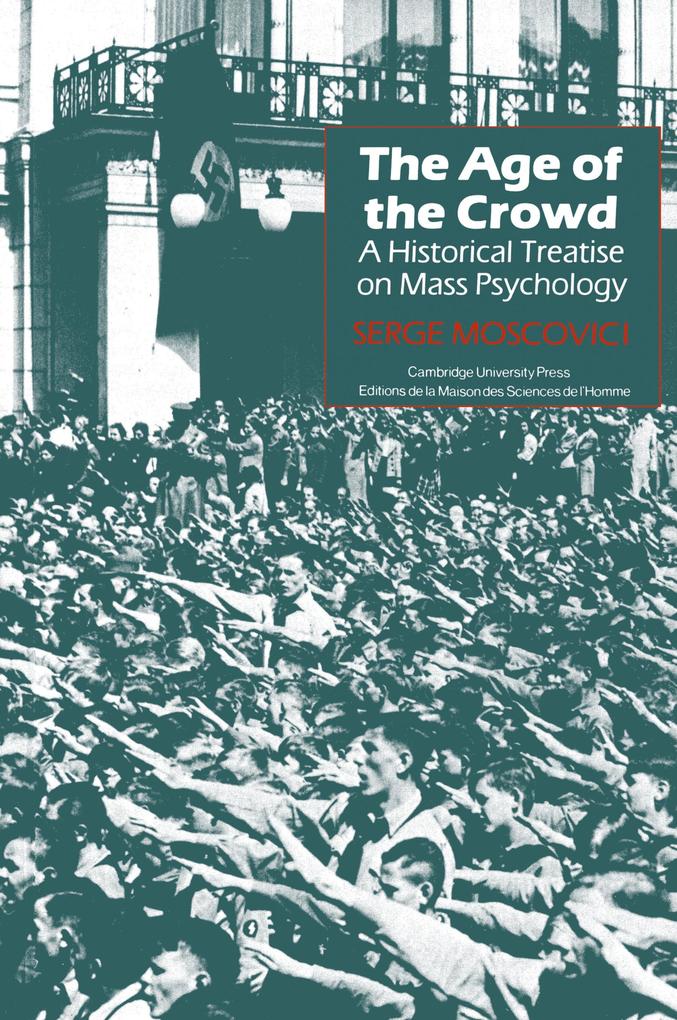
Zustellung: Fr, 23.05. - Di, 27.05.
Versand in 6 Tagen
VersandkostenfreiBestellen & in Filiale abholen:
This 1985 book explores both the development of mass psychology and the implications on the political and social life.
Inhaltsverzeichnis
Author's note; Introduction; Part I. The Study of the Masses: 1. The individual and the masses; 2. The revolt of the masses; 3. What do we do when faced with the masses?; 4. Eastern and western varieties of despotism; Part II. Le Bon and the Fear of Cowards: 1. Who was Gustave Le Bon?; 2. The Machiavelli of mass societies; 3. Four reasons for saying nothing; 4. The discovery of the masses; 5. Mass hypnosis; 6. The mental life of crowds; Part III. The Crowd, Women and Madness: 1. Collective matter: the impulsive and conservative crowd; 2. Collective form: the dogmatic and utopian crowd; 3. The leaders of the crowd; 4. Charisma; 5. The strategies of propaganda and mass suggestion; 6. Conclusion; Part IV. The Leader Principle: 1. The paradox of mass psychology; 2. Natural crowds and artificial crowds; 3. The leader principle; Part V. Opinion and the Crowd: 1. Communication is the valium of the people; 2. Opinion, the public and the crowd; 3. The law of the polarisation of prestige; 4. The Republic in France: from a democracy of the masses to a democracy of publics; Part VI. The Best Disciple of Le Bon and Tarde: Sigmund Freud: 1. The black books of Dr Freud; 2. From classical to revolutionary mass psychology; 3. The three questions of mass psychology; 4. Crowds and the libido; 5. The origin of affective attachments in society; 6. Eros and mimesis; 7. The end of hypnosis; Part VII. The Psychology of the Charismatic Leader: 1. Prestige and charisma; 2. The postulate of mass psychology; 3. The primal secret; Part VIII. Hypotheses About Great Men: 1. 'The man Moses'; 2. The family romances of great men; 3. Creating a people; 4. Mosaic and totemic leaders; Part IX. Secular Religions: 1. The secret of a religion; 2. The prohibition of thought; 3. The cult of the father; Conclusion: the planetary age of the crowd; Notes; References; Index of names; Subject index.
Produktdetails
Erscheinungsdatum
11. Oktober 2010
Sprache
englisch
Seitenanzahl
418
Autor/Autorin
Serge Moscovici
Verlag/Hersteller
Produktart
kartoniert
Gewicht
675 g
Größe (L/B/H)
229/152/25 mm
ISBN
9780521277051
Entdecken Sie mehr
Bewertungen
0 Bewertungen
Es wurden noch keine Bewertungen abgegeben. Schreiben Sie die erste Bewertung zu "The Age of the Crowd" und helfen Sie damit anderen bei der Kaufentscheidung.











